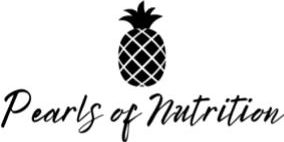The Food and Drug Administration (FDA) is the governing body responsible for protecting our food supply which includes not only food but the packaging food comes in. This includes all food additives. Additives that have been determined to be safe are labeled GRAS (Generally Recognized As Safe). But how does the FDA determine what is GRAS and what is frankenfood?
Here is the scary part- the FDA doesn’t, food manufacturers do. In 1958 Congress passed a law which required food manufacturers provide evidence of the safety of food additives prior to them going on the market. But this didn’t include additives which were already on the market and it did not require “absolute certainty” that an additive was safe only “reasonable assurance.” WTF? Well I can provide “reasonable assurance” that I won’t yell at someone after 3 shots of tequila but that is a far cry from “absolute certainty.” What about cars? Can they start giving us “reasonable assurance” that seat belt and airbags will keep us safe in the event of a crash? Please.
But it gets worse. You see, this legislation allows for food manufacturers to conduct their own studies which is the first problem because the company can design a biased study to produce the results they want. Sweet. The manufacturer then must present study results to a “panel of experts” to determine if the additive is safe. But, as this article in JAMA described, researchers have discovered that these “panel of experts” all have ties to the manufacturer. They found that-
“Of the 451 GRAS notices voluntarily submitted to the FDA between 1997 and 2012, 22.4% were made by an employee of an additive manufacturer, 13.3% were made by an employee of a consulting firm selected by a manufacturer, and 64.3% were made by an expert panel selected by the manufacturer or a firm that was a consultant to the manufacturer.” [1]
In case you didn’t add it up yourself- it equals 100%. One hundred percent. Every. Single. One. We absolutely cannot trust that these products are safe when the individuals ensuring their safety are profiting from their consumption.
Conflict of interest.
But what about the FDA you ask? Shouldn’t they be showing up with a superhero FDA cape and a theme song to save us from evil food manufacturers? Ha. After the “panel of experts” agrees the additive is GRAS the manufacturer can then send the GRAS notification to the FDA. and the FDA only responds with an “opinion letter.” Not an absolutely certain acceptance or denial?! Blasphemy. If the manufacturer says GRAS, so it is. Its just icing on the cake that these same researchers believe there are about 1,000 additives in the food supply that the FDA does not know about. Peachy. Now there is a very real possibility that some of these additives are, in fact, GRAS but until we are presented with unbiased information I think it is best to avoid it all.
Okay now that I have Debbie-Downed the crap out of this article I’d like to inject a little Sally Sunshine into your life. There is still plenty you can do to avoid being harmed by frankenfood.
1. Decrease your consumption of packaged foods. I don’t even care if it is all organic. Do not kid yourself, just because it says organic does not mean it is healthy.
2. READ THE INGREDIENTS when you buy packaged foods (I’m talking tomatoes or something, if you buy artificially colored foods I’m coming to your house) . If you cannot pronounce an ingredient or if you don’t know what it is, where it comes from, or why it needs to be in that food, you shouldn’t eat it.
3. Grow your own garden and buy heirloom seeds. Heirloom seeds have not been genetically modified. Even if you are an apartment dweller and can only grow an herb garden, do it.
4. Always wash your produce. Ingredients can be added to the food themselves as well as the containers, cans, and plastic. It is also important to reduce the risk of consuming disease-causing microbes like E. coli.
5. Buy organic pasture raised meats. This is a topic that deserves a post of its own and we will get there but for now just know this is the best meat decision you can make.
6. Someone please get a degree in Health Policy and change this, I’m not sure I can handle another two years of college.
7. I’m exhausted just thinking about more college. Good night.
If you are interested in reading the full article you can find it here. Their reference list has further information.
